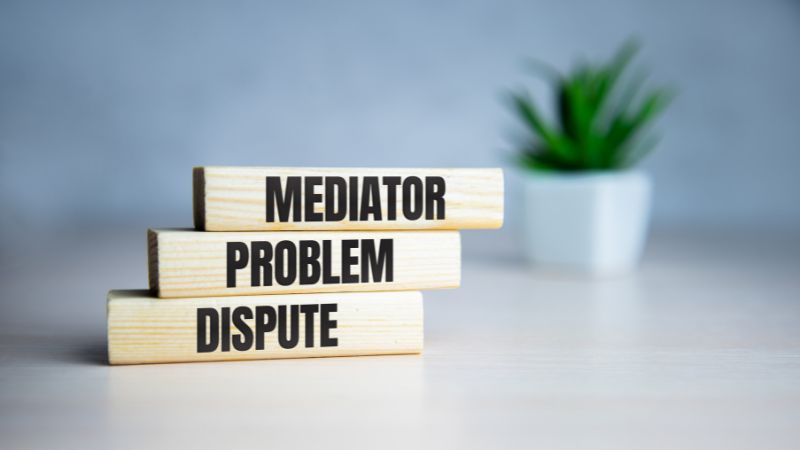We have all heard the terms ‘Litigation’ and ‘dispute resolution’ but what do they actually mean?
Litigation and Dispute Resolution are formal processes in which legal disputes are resolved. They are fundamental aspects of the legal system, each serving a unique purpose in resolving conflicts. Litigation offers a formal and legally binding process for resolving disputes, while dispute resolution methods provide more flexible, efficient, and cost-effective alternatives.
What is Litigation?
Litigation refers to the process of resolving disputes or conflicts through the court system. It is a formal legal procedure where parties involved in a dispute present their cases in front of a judge. The key aspects of litigation include:
- Court Hierarchy: The English court system is hierarchical. Civil cases are often dealt with in the County Courts or the High Court, depending on the complexity and the value involved.
- Pre-trial Procedures: Before a trial begins, there are several pre-trial procedures, such as the exchange of evidence and pre-trial hearings, which aim to clarify the issues in dispute and encourage settlement without a trial.
- Trial Process: During the trial, both parties present their arguments, evidence, and witnesses to the court. In civil cases, the decision is made by a judge.
- Appeal Process: After a judgment, parties have the option to appeal the decision to a higher court if they believe there has been an error in the application of the law or in the handling of the trial.
- Legal Representation: Parties in litigation are often represented by solicitors and barristers. Solicitors typically handle the preparatory work and provide general legal advice, while barristers are specialists in advocacy and present cases in higher courts.
- Costs: Litigation can be expensive, and the losing party may be required to pay the costs of the winning party.
- Alternative Dispute Resolution (ADR): Besides going to court, parties are also encouraged to use ADR methods like mediation or arbitration to resolve disputes, as these can be less costly and quicker.
The legal system is known for its emphasis on fairness, the rule of law, and detailed procedural rules, making litigation a complex field requiring professional legal expertise.
What is Dispute Resolution?
Dispute resolution encompasses various methods used to resolve conflicts or disputes between parties, without or before resorting to formal litigation. This includes a range of processes both within and outside the court system. The main methods of dispute resolution are:
- Negotiation: The simplest form of dispute resolution, where parties communicate directly with each other to reach a mutually acceptable agreement. It’s informal and offers parties control over the outcome.
- Mediation: In mediation, a neutral third party (the mediator) helps the disputing parties to come to an agreement. The mediator facilitates communication, helps parties understand each other’s perspectives, and assists in finding a mutually acceptable solution. Mediation is confidential and non-binding until an agreement is reached.
- Arbitration: Arbitration involves a neutral third party (the arbitrator) who listens to the arguments from both sides and makes a decision that is usually binding. It is less formal than court proceedings and can be faster and more flexible. The rules of arbitration are determined by the parties in the agreements reached or by an arbitral institution if involved.
- Conciliation: Similar to mediation, conciliation involves a third party who assists the parties in resolving their dispute. However, a conciliator may play a more active role in suggesting terms for settlement.
- Ombudsmen: For certain types of disputes, such as those with public services or certain industries, an ombudsman can be approached. An ombudsman makes decisions on complaints that are generally binding on the provider, but not on the complainant.
Each of these methods has its advantages and drawbacks, and the choice often depends on factors such as the nature of the dispute, the relationship between the parties, costs, and the desired outcome (e.g., maintaining business relations).
Litigation and dispute resolution services at Backhouse:
If you require assistance regarding litigation or dispute resolution, get in touch with our expert Litigation team to talk about your options.
Tel: 01245 893400
Email: info@backhouse-solicitors.co.uk
Visit: 17 Duke Street, Chelmsford, CM1 1JU
Or send us a message through the Contact Us page on this website.






